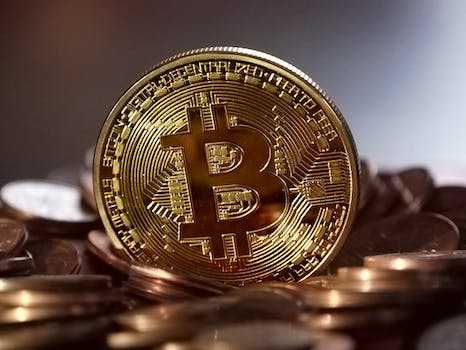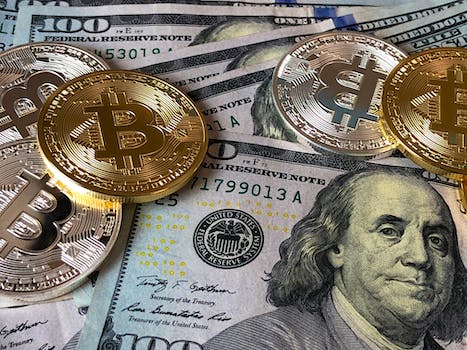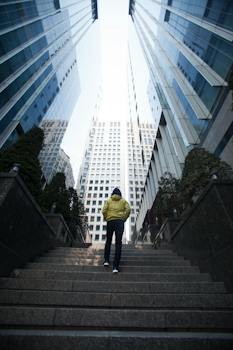

-
Table of Contents
"The Impact of Rising US Inflation: Navigating Everyday Life Amid Recession Concerns."
Introduction
The Impact of Rising US Inflation on Everyday Life and Potential Recession Concerns
Rising inflation in the United States can have significant implications for everyday life and raise concerns about a potential recession. Inflation refers to the general increase in prices of goods and services over time, resulting in a decrease in the purchasing power of money. When inflation rises, it affects various aspects of daily life, including the cost of living, savings, investments, and overall economic stability. Additionally, concerns about a potential recession arise as inflation can be an indicator of an overheating economy. Understanding the impact of rising US inflation is crucial for individuals, businesses, and policymakers to make informed decisions and mitigate potential risks.
The Effects of Rising US Inflation on Household Budgets
The Impact of Rising US Inflation on Everyday Life and Potential Recession Concerns
In recent months, the United States has experienced a significant increase in inflation rates. This rise in inflation has had a profound impact on various aspects of everyday life, particularly on household budgets. As prices continue to climb, families across the nation are finding it increasingly difficult to make ends meet.
One of the most noticeable effects of rising inflation is the increased cost of essential goods and services. From groceries to gasoline, Americans are feeling the pinch as prices soar. For example, the price of a gallon of milk has risen by nearly 10% in the past year alone. This means that families who rely on milk for their daily needs are now spending more of their hard-earned money just to maintain their basic nutrition.
Similarly, the cost of transportation has also skyrocketed. With the price of gasoline reaching record highs, commuting to work or running errands has become a significant financial burden for many individuals. This increase in transportation costs not only affects individuals directly but also has a ripple effect on the prices of goods and services, as businesses pass on their increased expenses to consumers.
Moreover, rising inflation has also impacted housing costs. Rent prices have surged, making it increasingly difficult for individuals and families to find affordable housing. This has led to a rise in homelessness and an increase in the number of people living in overcrowded or substandard conditions. As housing costs continue to rise, the dream of homeownership becomes even more elusive for many Americans.
The effects of rising inflation on household budgets are not limited to increased expenses. Inflation also erodes the purchasing power of individuals' income. As prices rise, the value of money decreases, making it more challenging for families to stretch their dollars. This means that even if individuals' salaries remain the same, they are effectively earning less in terms of what they can afford to buy.
The impact of rising inflation on household budgets is not only felt in the present but also raises concerns about the future. Many economists worry that the current inflationary trend could be a sign of an impending recession. Inflation is often seen as a precursor to a downturn in the economy, as it indicates that demand is outpacing supply. If this trend continues, it could lead to a decrease in consumer spending, job losses, and a decline in overall economic growth.
Furthermore, the potential for a recession raises concerns about the long-term financial stability of individuals and families. During a recession, job security becomes uncertain, and layoffs become more common. This can have devastating effects on household budgets, as individuals may struggle to find new employment or face reduced hours and wages. The fear of job loss and financial instability can lead to increased stress and anxiety, further exacerbating the impact of rising inflation on everyday life.
In conclusion, the rising inflation in the United States has had a significant impact on household budgets. From increased costs of essential goods and services to the erosion of purchasing power, families are feeling the strain of rising prices. Moreover, the potential for a recession adds to the concerns about long-term financial stability. As the nation grapples with these challenges, it is crucial for policymakers and individuals alike to find ways to mitigate the effects of rising inflation and ensure the well-being of all Americans.
How Rising US Inflation Impacts Consumer Spending Habits

The Impact of Rising US Inflation on Everyday Life and Potential Recession Concerns
Inflation is a term that often makes headlines, but what does it really mean for everyday Americans? In simple terms, inflation refers to the increase in prices of goods and services over time. When inflation rises, the purchasing power of the dollar decreases, and this can have a significant impact on consumer spending habits.
One of the most immediate effects of rising inflation is the increase in the cost of living. As prices go up, consumers find themselves paying more for everyday necessities such as groceries, gas, and housing. This means that individuals and families have less disposable income to spend on other goods and services. For example, if the price of gasoline increases, consumers may have to cut back on dining out or entertainment expenses to compensate for the higher cost of fuel.
Rising inflation also affects borrowing and lending rates. When inflation is high, interest rates tend to rise as well. This means that consumers who have loans, such as mortgages or car loans, may see an increase in their monthly payments. Higher interest rates can also discourage individuals from taking on new debt, which can have a negative impact on the overall economy.
Another way rising inflation impacts consumer spending habits is through the erosion of savings. As the value of the dollar decreases, the purchasing power of savings diminishes. This can be particularly concerning for individuals who are nearing retirement or relying on their savings for future expenses. Inflation erodes the value of their savings, making it more difficult to maintain their desired standard of living.
Furthermore, rising inflation can lead to wage stagnation. When prices increase, workers may demand higher wages to keep up with the rising cost of living. However, if wages do not increase at the same rate as inflation, workers may find themselves falling behind financially. This can lead to a decrease in consumer spending as individuals struggle to make ends meet.
The impact of rising inflation on consumer spending habits can also have broader implications for the economy as a whole. When consumers have less disposable income, businesses may see a decrease in demand for their products and services. This can lead to layoffs and a slowdown in economic growth. In extreme cases, a prolonged period of high inflation can even lead to a recession.
Given the potential negative consequences of rising inflation, it is not surprising that concerns about a potential recession often accompany discussions about inflation. A recession is typically defined as a significant decline in economic activity, often characterized by high unemployment rates and a decrease in consumer spending. If inflation continues to rise unchecked, it can create a vicious cycle where consumers cut back on spending, leading to a decrease in demand, which in turn can lead to job losses and further economic decline.
In conclusion, rising inflation has a direct impact on consumer spending habits. As prices increase, individuals and families have less disposable income to spend on other goods and services. This can lead to a decrease in demand, job losses, and potentially even a recession. It is important for policymakers and individuals alike to monitor inflation rates and take appropriate measures to mitigate its impact on everyday life and the overall economy.
Potential Recession Concerns Amidst Rising US Inflation
The Impact of Rising US Inflation on Everyday Life and Potential Recession Concerns
In recent months, the United States has experienced a significant increase in inflation rates. This rise in inflation has raised concerns among economists and everyday citizens alike, as it has the potential to impact various aspects of everyday life and even lead to a recession. Understanding the potential recession concerns amidst rising US inflation is crucial for individuals and policymakers alike.
One of the primary concerns associated with rising inflation is its impact on the purchasing power of consumers. As prices for goods and services increase, individuals find that their dollars do not stretch as far as they once did. This means that everyday items, such as groceries, gas, and housing, become more expensive, putting a strain on household budgets. For many families, this can lead to difficult choices, such as cutting back on discretionary spending or even struggling to meet basic needs.
Furthermore, rising inflation can also have a detrimental effect on savings and investments. As the value of money decreases, the returns on savings accounts and other low-risk investments may not keep pace with inflation. This means that individuals who rely on these sources of income may find that their savings are eroded over time. Additionally, the uncertainty caused by inflation can make it challenging for individuals to plan for the future, as they are unsure of how much their money will be worth in the coming years.
The impact of rising inflation is not limited to individuals and families; it also affects businesses and the overall economy. As the cost of production increases, businesses may be forced to raise prices to maintain profitability. This can lead to a decrease in consumer demand, as individuals may choose to cut back on spending or seek out cheaper alternatives. In turn, this decrease in demand can lead to layoffs and reduced economic growth, potentially pushing the economy into a recession.
The potential for a recession is a significant concern amidst rising inflation. A recession is typically defined as a period of economic decline characterized by a decrease in GDP, increased unemployment rates, and reduced consumer spending. While it is not guaranteed that rising inflation will lead to a recession, it is certainly a possibility. The combination of higher prices, reduced consumer purchasing power, and decreased business profitability can create a downward spiral that negatively impacts the overall economy.
To mitigate the potential recession concerns amidst rising US inflation, policymakers must take appropriate measures. One possible approach is for the Federal Reserve to adjust interest rates. By raising interest rates, the Federal Reserve can slow down economic growth and reduce inflationary pressures. However, this approach must be carefully balanced, as excessively high interest rates can also stifle economic activity and lead to a recession.
Additionally, policymakers can implement fiscal policies aimed at stimulating economic growth and reducing inflation. This may include measures such as tax cuts, increased government spending on infrastructure projects, and targeted support for industries that have been particularly affected by rising inflation. By taking proactive steps to address the root causes of inflation and support economic growth, policymakers can help alleviate recession concerns and promote stability.
In conclusion, the impact of rising US inflation on everyday life and potential recession concerns cannot be ignored. From reduced purchasing power and eroded savings to decreased consumer demand and potential economic decline, the consequences of rising inflation are far-reaching. By understanding these concerns and implementing appropriate policies, individuals and policymakers can work together to mitigate the potential negative effects and promote a stable and prosperous economy.
Q&A
1. How does rising US inflation impact everyday life?
Rising US inflation can lead to higher prices for goods and services, reducing the purchasing power of consumers. This can result in increased costs for essential items, such as food and housing, and potentially lower standards of living for individuals and families.
2. What are the potential concerns of a recession due to rising US inflation?
Rising US inflation can be a sign of an overheating economy, which may prompt the Federal Reserve to raise interest rates. Higher interest rates can slow down economic growth and potentially lead to a recession, as borrowing becomes more expensive for businesses and consumers.
3. How does rising US inflation affect investments and financial markets?
Rising US inflation can impact investments and financial markets in various ways. It can lead to higher interest rates, which can reduce the value of fixed-income investments like bonds. Additionally, inflation erodes the purchasing power of money, potentially reducing the real returns on investments. Investors may also adjust their portfolios to hedge against inflation, which can cause volatility in financial markets.
Conclusion
Rising US inflation can have several impacts on everyday life, including increased prices for goods and services, reduced purchasing power, and higher interest rates. These effects can lead to financial strain for individuals and businesses alike. Additionally, concerns about potential recession may arise due to the negative consequences of inflation on economic stability and growth. It is crucial for policymakers to closely monitor and manage inflation to mitigate its adverse effects on everyday life and prevent the onset of a recession.











